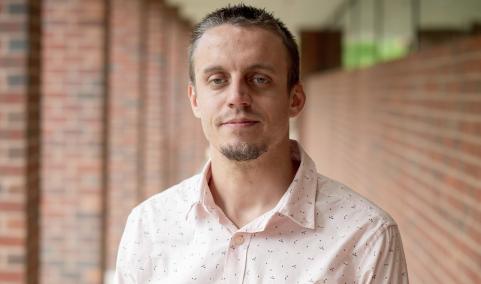Meet Javier Rasero, New Faculty Member in the School of Data Science

Dr. Javier Rasero joined the UVA School of Data Science in 2023. Dr. Rasero, who is originally from Bilbao, Spain, describes his current research and personal interests.
Brain Institute: Briefly describe your current research projects and interests.
Dr. Rasero: Broadly, my research focuses on studying individual differences in clinical and pre-clinical populations by integrating brain data. More specifically, I am currently working on multimodal subtyping and prediction of Autism, motivated by the vast heterogeneity in results and the challenges in correctly diagnosing and treating this brain disorder. I believe that the integration of brain data in this case is crucial. Additionally, I am interested in exploring advanced methodologies (e.g., deep learning) to exploit all the different sources of information from the brain. Finally, as an advocate for open science, I am continuously involved in developing and deploying tools that the neuroscience community can benefit from in their own research.
What do you find to be the most exciting and inspiring area of emerging neuroscience research?
Over the past few years, there has been a shift in studying the brain from a static point of view to exploring in detail its dynamic properties. We have obtained very interesting results so far, which is truly exciting. Additionally, as someone whose research has been particularly rooted in brain connectivity—functional connectivity more specifically—I find the current attempts to go beyond pairwise (i.e. node-to-node) interactions in the brain really inspiring. This will indeed play an active part in my future research!
Why did you decide to come to UVA?
This is an easy one: The School of Data Science! I love working with data, so the existence of a place dedicated just to this, which is not common, still excites me. It is also a new school, which translates into a lot of room to contribute to its growth. All of this, combined with the healthy, positive, and energetic environment that I discovered when I first came here, made my decision really easy. This also extends to all the people around UVA that I have happened to meet since I joined. I feel really fortunate every single day to have been given the opportunity to be part of this university.
What's the best part about your job?
As scientists, I think we all agree that one of the best parts of our job is that we are continuously learning new things every day, something that happens at any level and through interactions with any of our colleagues. This is indeed pure gold in our profession, and something we don't emphasize enough. Additionally, as a high-energy physicist by training, where collecting data requires significant efforts in terms of technology development, and time and money investment, I am still fascinated by the amount of information we can extract from our little friend, the brain, and build up datasets so easily, in comparative terms.
What led you to a career in neuroscience?
As I've just mentioned, I am a high-energy physicist by training. I earned my PhD from the University of Valencia (Spain), where I specialized in building phenomenological models of the very early Universe. However, after that, I felt the desire to change gears to work closely with more accessible data. This, along with the multitude of unanswered research questions involving the brain, led me to neuroscience. It’s probably one of the best decisions I have ever made in my life.
What advice do you have for neuroscience trainees?
Always foster your curiosity. Unconsciously, this will lead you to learn new things, and, importantly, increase your networking by interacting with new colleagues. In the long term, your research will really benefit from this.
What's something new that you've learned recently (at work or outside of work)?
Thanks to my colleagues at the School of Data Science, I have recently started learning more about Natural Language Models and analyzing text data. I find all of this really attractive and wonder whether we can incorporate such models into our brain research.
Where are you from originally?
I am proud to be from Bilbao, a mid-sized city located in the Basque Country, north of Spain. I invite all the readers to visit because you won't regret it. In fact, the entire north of Spain is amazing, but rather unknown among tourists. On the other hand, throughout my career, I feel super fortunate to have lived in other wonderful cities like Valencia (Spain) and Bari (Italy). Here in the US, I happily lived in Pittsburgh for the past four years. It really felt like being back in my hometown Bilbao (in fact, they are sister cities!).
What's your favorite way to spend a day off?
Hanging out with my group of closest friends (we call this group 'cuadrilla' where I'm from). It doesn’t matter where or how, but just being with them. If that is not possible, I love listening to music, reading, or just doing nothing at all. I think we usually underestimate the healthiness of feeling bored when we are off work.
What is a surefire way to make you laugh?
As a passionate fan of the soccer team from my hometown, Athletic Club, just send me a video of Real Madrid or Barcelona losing a match, especially an important one. That always makes me laugh.
Dr. Rasero was hired as a part of the Grand Challenges Research Investments in Brain and Neuroscience. The Grand Challenges are a key component of the University's 2030 "Great & Good" Strategic Plan, a set of initiatives focused on bringing the University to preeminence in key focus areas while acting in service to society.